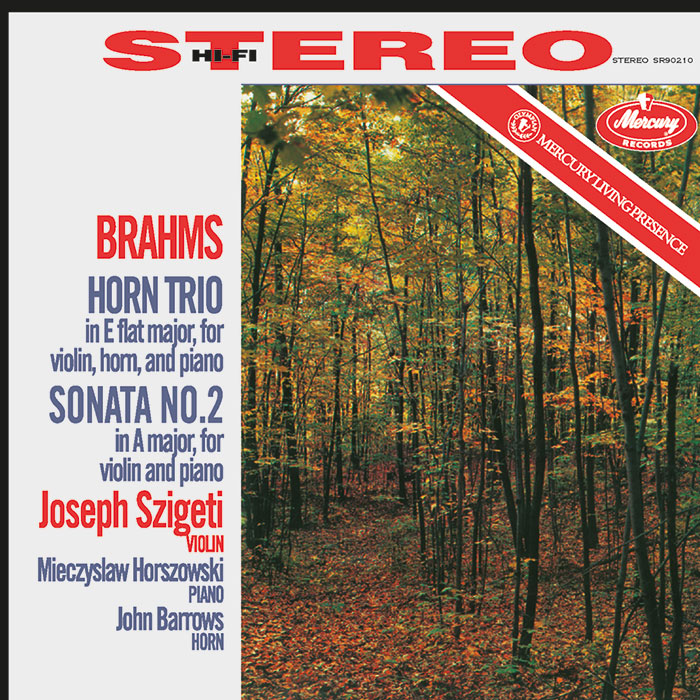Logowanie
Dziś nikt już tak genialnie nie jazzuje!
Bobby Hutcherson, Joe Sample
San Francisco
SHM-CD/SACD - NOWY FORMAT - DŻWIĘK TAK CZYSTY, JAK Z CZASU WIELKIEGO WYBUCHU!
Wayne Shorter, Freddie Hubbard, Herbie Hancock, Ron Carter, Elvin Jones
Speak no evil
UHQCD - dotknij Oryginału - MQA (Master Quality Authenticated)
Chesky! Niezmiennie perfekcyjny
Winylowy niezbędnik
ClearAudio
Double Matrix Professional - Sonic
najbardziej inteligentna i skuteczna pralka do płyt winylowych wszelkiego typu - całkowicie automatyczna
BRAHMS, Joseph Szigeti, Mieczyslaw Horszowski, John Barrows
Trio for Violin, Horn & Piano/ Sonata No. 2
- Trio for Violin, Horn and Piano in E flat major, Op. 40 >>> Posłuchaj fragmentu <<<
- Sonata for Violin and Piano No. 2 in A major, Op.100
- Joseph Szigeti - violin
- Mieczyslaw Horszowski - piano
- John Barrows - horn
- BRAHMS
In the 18th and 19th century, a great many chamber-music works for winds were composed with a specific occasion in mind. Brahms’s Horn Trio, however, is an exception in that it was not especially written for a contemporary virtuoso. It is known, though, that Brahms himself played this difficult instrument fairly well, that he valued the beauty of its tone, and that he was inspired to compose the work recorded here by an inner urge. In his performance, John Barrows concentrates upon bringing out the compositional layout of the work, which largely dispenses with a display of virtuosi fireworks. The sonorous tonal character of the horn and its range of expression – from lyrical to mournful – are shown off to great effect. In the rapid Finale, however, Barrows pays tribute to the various playing techniques offered by this aristocratic instrument. With blaring staccatos and organ-like bass notes, he goads his fellow musicians to join him in a musical hunt, as it were, and they take up his challenge with thrilling effect. "…The Hungarian violinist Joseph Szigeti (pronounced 'Zuh-geh-tee'), about whom I wrote at length in this magazine some ten years ago, was one of this century's great artists…his insight into one of the greatest of the great nineteenth-century concertos is still consummately thoughtful and deeply moving. Wobbly intonation is simply the price you pay with Szigeti, early or late. In my opinion, it is a price well worth paying for the intelligence and expressiveness that you are always rewarded with, the Brahms Sonata No. 2 being a case in point." - Jonathan Valin, The Absolute Sound, June/July 2006


































